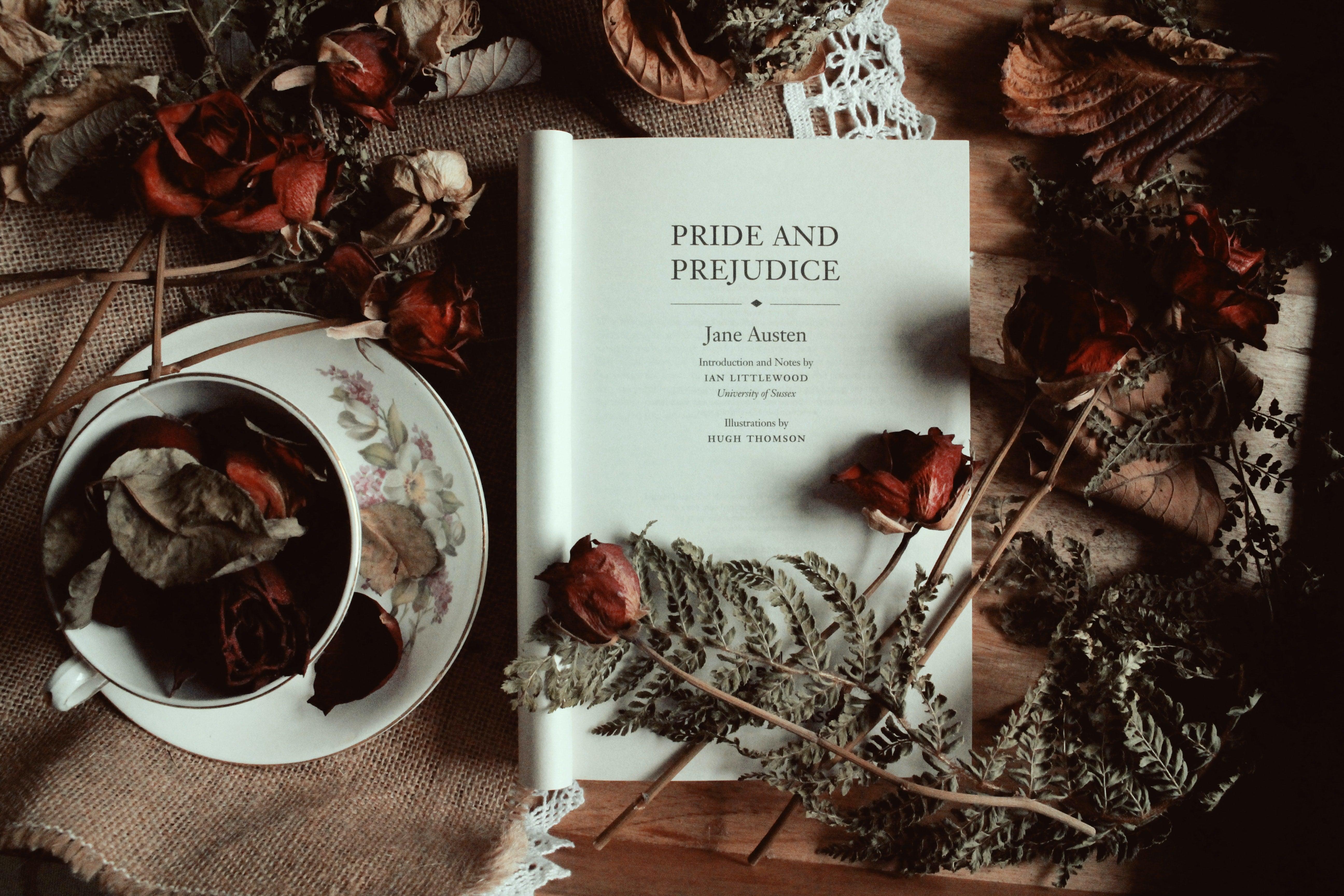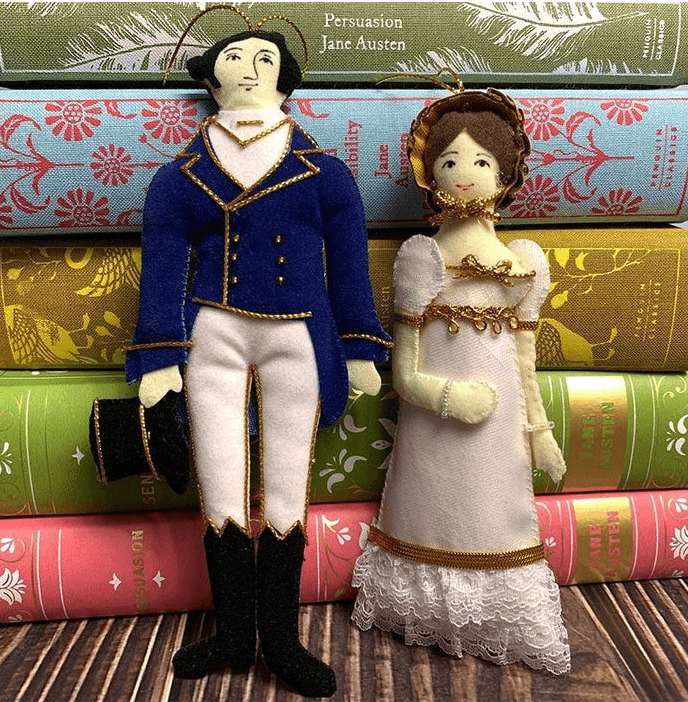
A love letter to Austen

Jane Austen is loved across the globe to this day, 200 years after her books were first published. Those who love her novels, called “Janeites,” can tell you why: Austen’s novels explore universal themes of love and romance while at the same time, poking fun at society’s pretensions. Her characters are vivid, her plots ingenious, and her insights, both personal and social, are deep and pointed. That’s what makes her books classics.
My obsession with Jane Austen began in high school. I had read the novels and seen several screen adaptations—and was bestotted. But I was shocked to learn that none of my classmates knew who she was. One even asked, “Jane Austen—he was in the movie Jane Eyre right?”
In my private high school, students were allowed to teach classes in the afternoon for one week. I decided to teach a class on Jane Austen and the Regency period. We watched movie adaptations, and students had to read Pride and Prejudice and one other book of their choice from the six Austen novels. They also had to write a story based in the Regency era in a Jane Austen style.
Teaching the class made me think a lot about why people still love her writing so much. As a society, we romanticize the Regency period, now two hundred years in the past. How could you not, with the elaborate dresses and dashing coats for gentlemen that somehow, make us all swoon with the romance of it all?
The big reason why I love Jane Austen’s novels is that her characters’ stories have a happy ending: they all find love. That makes you think that everyone can find happiness and true love, no matter your background. It’s a universal longing that gives a warm and fuzzy feeling. I use her books as my happy go-to books to read when I feel like I need light in my life. I love dark and spooky stories too, and ghosts, haunted houses, and vampires are what I normally read and watch. I love to feel frightened—in books!—and Jane Austen is the balance to those deliciously scary stories.
Also, Austen’s heroines end up having quite a few adventures, which allows the reader to think that they too can have adventure in their life. Even little adventures could mean a big life change. Just walking to town could put the reader in front of a true love for the very first time. That gets the reader excited about the little things in life that could potentially turn into something much bigger.
Another reason why I love Austen is that she pokes fun at society—a lot. No matter what society thinks, you can marry who you really love, not just who you’re supposed to end up with. Everyone had the wrong idea about Mr. Darcy, thinking he was heartless and mean. Turned out, he could be loving too, despite what society thought of him.
Northanger Abbey is the best example of Austen’s sense of humor when it comes to society and its opinions. The whole premise of the novel is that Catherine Morland reads too much and therefore has a wild imagination that gets her into trouble. She arrives at Northanger Abbey with preconceived ideas that make her love interest, Mr. Tilney, mad at her for having them. She is sent away in the middle of the night in disgrace because the father thought she was a rich heiress.
Society had strict rules back in the Regency period. A lot of women (and some men, too) had to marry for money. Austen’s characters do not care that much about money, which is a freeing thought. In the end, the heroines have enough money with their partners of their choice. The Austens themselves were not a rich family nor were they particularly emotionally close (with a few exceptions, such as Jane and her sister Cassandra). In her books, Austen gave her characters everything that she did not have in life: money and love.
Austen’s novels are comforting because we know we will get a happy ending and true love in every book. Each one has conflicts of various kinds, but in the end, the complications are resolved and all is tied up in a neat glow of positive outcomes. She was an expert at resolving conflict where even the characters thought all was lost and everybody ruined.
For example, Sense and Sensibility shows that Eleanor thought her chance at love could never be with Mr. Edward Ferrars because he was already secretly engaged—or so she thought. She was mistaken when a marriage was announced and thought Edward had already been married. That, however, was not the case— but it turned out to be his brother instead. She was then free to marry Edward after this mistake had been rectified.
People either love or don’t like Jane Austen’s books. I have heard some call her books boring—for example, the taxi driver taking me from her house in Hampshire back to the train station. Boring? I rather think they have a lot of drama in them that still excites people today, despite the fact we know how each story will end. She never fails to put me in a good mood. The troubles of her characters are very real and could happen to anybody in real life but her stories always show a way out. That’s a feeling we could all be reminded of more often, and the reason her six novels are being read with great enthusiasm and interest more than 200 years after their publication. If classic literature is news that stays news, Austen’s works are still very meaningful headlines today.



Leave a comment
This site is protected by reCAPTCHA and the Google Privacy Policy and Terms of Service apply.